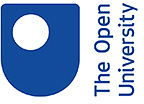You are here
Event 5 Extending influence via collaborative working II – Creative Industry and Community Groups
7 February 2014, The OU in London, 1-11 Hawley Crescent, London NW1
This workshop looked at the interface of academia with community groups and the creative industries and involved associated training activities. Speakers included Eylem Atakav, Senior Lecturer in Film and Television Studies, University of East Anglia; Ellen Kythor, the London Feminist Network (LFN); Hugh David, freelance media consultant; Keith Johnston, Senior Lecturer in Film and Television Studies, University of East Anglia; BJ Epstein, Lecturer in Literature and Public Engagement, University of East Anglia, and Mark Rimmer, Lecturer in Media Studies.
To view the event programme and podcasts, please click the links below:
Podcasts
Hugh David and Keith Johnston together talked about the interaction between academic research and the commercial requirements of a creative industries partner including debates around timescale, content, tone and address.
BJ Epstein discussed her work with a variety of community partners including libraries, a café, a museum, a department store and many other groups and individuals. She outlined some of the joys and challenges of working with such diverse community partners and offered tips for those interested in this kind of community engagement.
Ellen Kythor talked about the way in which the London Feminist Network's seminars are organised to promote academic work to the public and Eylem Atakav focused on the ways in which academics approach organisations like the LFN and the importance of sharing academic knowledge with different communities.
Mark Rimmer recently completed an AHRC-funded research project which aimed to engage with local community-based arts organisations as collaborative partners. Having outlined the aims of the project and its research approach, particular attention was given to some of the challenges and complexities involved in working towards project outcomes with non-HEI partners, as well as potentially thorny issues around confidentiality, anonymity and the communication of findings.








